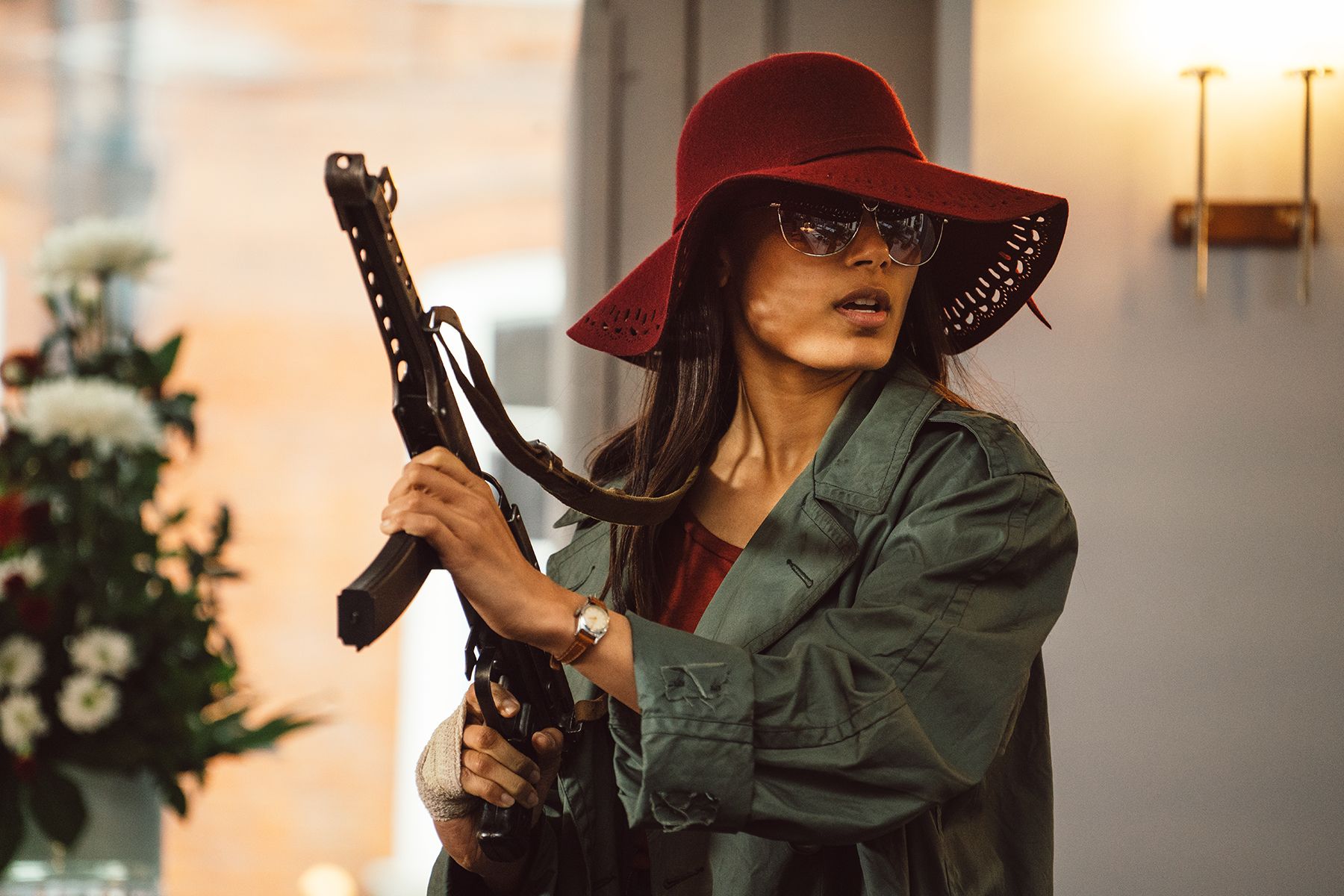
One of the most impressive aspects of Showtime/Sky's six-part Guerrilla television miniseries is that it's set in London in 1971 but doesn't make a big deal of it. The soundtrack doesn't throb with Rolling Stones songs; the wallpaper patterns don't pain the eyes; the collars, lapels, sideburns and moustaches are all reasonably proportioned. What's even more impressive is that Guerrilla was created by an American writer-director, John Ridley, who once made a film about Jimi Hendrix's life in London, Jimi: All Is by My Side. But it never once comes across as a tourist's caricature of hippy-era Carnaby Street grooviness. Ridley, the Oscar-winning screenwriter of 12 Years a Slave, turns the music down low and restricts his color palette to muted browns and grays.
For a drama about black British civil rights activists resorting to violent direct action, the tone is surprisingly subdued too. There is one shooting and one fatal beating in the first episode, and a similar amount of bloodshed in the second. But while its title has the incendiary impact of a Molotov cocktail, Ridley's thoughtful series is more of a slow-burner.
What it examines is how moderates are radicalized, and how communities are divided: Replace the word "black" with the word "Muslim" in the script, and Guerrilla could be talking about the U.K. in 2017. Its protagonist is Marcus (Babou Ceesay), his name a tribute to Darcus Howe, the prominent British anti-racism campaigner who died earlier this month—and who was a consultant on the series. Unlike Howe, though, Marcus isn't a journalist but a mild-natured English lecturer. Fired from his previous job for complaining that the books on the curriculum "reinforced a servile bias," he still hopes to return to academia, despite the sniffy insistence of Job Centre officials that he might be better suited to van-driving. In the meantime, he is content to volunteer as a literature teacher in a prison, and to attend meetings and rallies with his British-Indian girlfriend, Jas (Freida Pinto).
Even this level of activism is too high for their friend Kent (Idris Elba, also the series's executive producer). But Marcus's and Jas's patience is stretching to breaking point. Harassed by white supremacists, upset by an immigration bill that is going through Parliament and threatened by officers from the police's Black Power Desk, they decide to spring a militant writer from jail.
In a film of the same story, this would be the cue for a montage of daring raids and narrow escapes, probably accompanied by a soundtrack of "Street Fighting Man." But Guerrilla takes the time to ponder the ethics and practicalities of its characters' new careers. Becoming an outlaw is all very well, it seems, but you have to figure out where you'll live, what you'll live on and whom you're willing to work with in order to survive. It's not until Marcus goes cap in hand to a far-left cell of activists that he learns just how many uncooperative revolutionary factions there are. The argument between the Judean People's Front and the People's Front of Judea in Monty Python's Life of Brian doesn't come close.
Instead of creating heroic rebels who battle the forces of oppression, or fanatical terrorists who are outwitted by fearless detectives, Ridley gives all of his characters their own motives and priorities, and their own opinions on which bad deeds can be justified in the name of the greater good. The head of the Black Power Desk (Rory Kinnear) appears initially to be the embodiment of police brutality: a Rhodesian thug who is so weighed down by his contempt for his enemies that he can barely muster the energy to sneer at them. But even he is allowed to make a tenable case for his strong-arm tactics, as vile as they are. The series may focus on the friction between blacks and whites, but nothing in it is black and white.
If anything, Ridley's thoroughly researched and steadily paced history lesson is a little too measured. In the opening two episodes, the characters aren't individuals we believe in and care about so much as spokespeople for the various viewpoints in a debate. It's a debate that is always stimulating enough to be worth watching. But its participants could afford to be louder and more flamboyant—even if their clothes and music should probably stay the way they are.
Guerrilla begins Apr. 16 on Showtime (U.S.) and Sky (U.K.).
Uncommon Knowledge
Newsweek is committed to challenging conventional wisdom and finding connections in the search for common ground.
Newsweek is committed to challenging conventional wisdom and finding connections in the search for common ground.
About the writer
To read how Newsweek uses AI as a newsroom tool, Click here.








